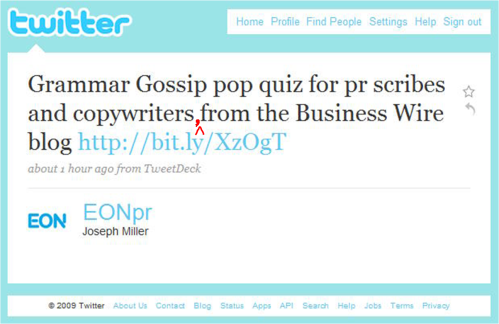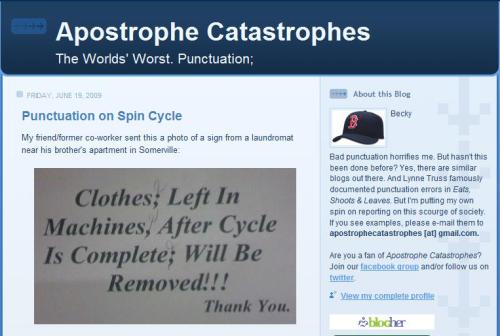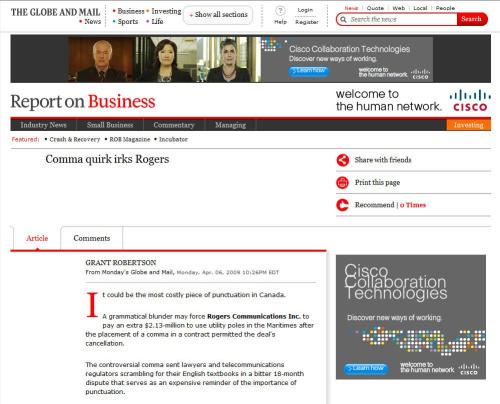A lot of buzz around this issue today … Barrett got us blogging when he sent this tweet:

Per Wiki, the serial comma (also known as the Oxford comma and the Harvard comma) is the comma used immediately before a grammatical conjunction (usually and, or, and sometimes nor) preceding the final item in a list of three or more items. More simply, as per AskOxford.com, the ‘Oxford comma’ is an optional comma before the word ‘and’ at the end of a list.
For example, this three-media list can be punctuated as either “Linkedin, Facebook, and Twitter” (with the serial comma) or as “Linkedin, Facebook and Twitter” (without the serial comma).
There is no consensus among writers and editors on the usage or avoidance of the serial comma. Most American English authorities recommend its use, but it seems to be less frequent in British English. In many languages (e.g., French, German, Italian, Polish, Spanish) the serial comma is not the norm; it may even be explicitly forbidden by punctuation rules – but it may be allowed or even recommended in some cases to avoid ambiguity or to aid understanding when reading.
Wikipedia actually has an excellent section on this topic. Take a look:
Contents
1 Arguments for and against
2 Ambiguity
3 Usage
4 References & External links
We have relaxed our own position on the use of the serial comma. Before text limits of 140 characters or thereabouts, we would insist, but now, we say lose any extra character you can while preserving meaning.
There are many views on this little mark. Click here to read one solution. What’s your view?
Read Full Post »








